Raymond and The Ray of Sunshine!
Part One
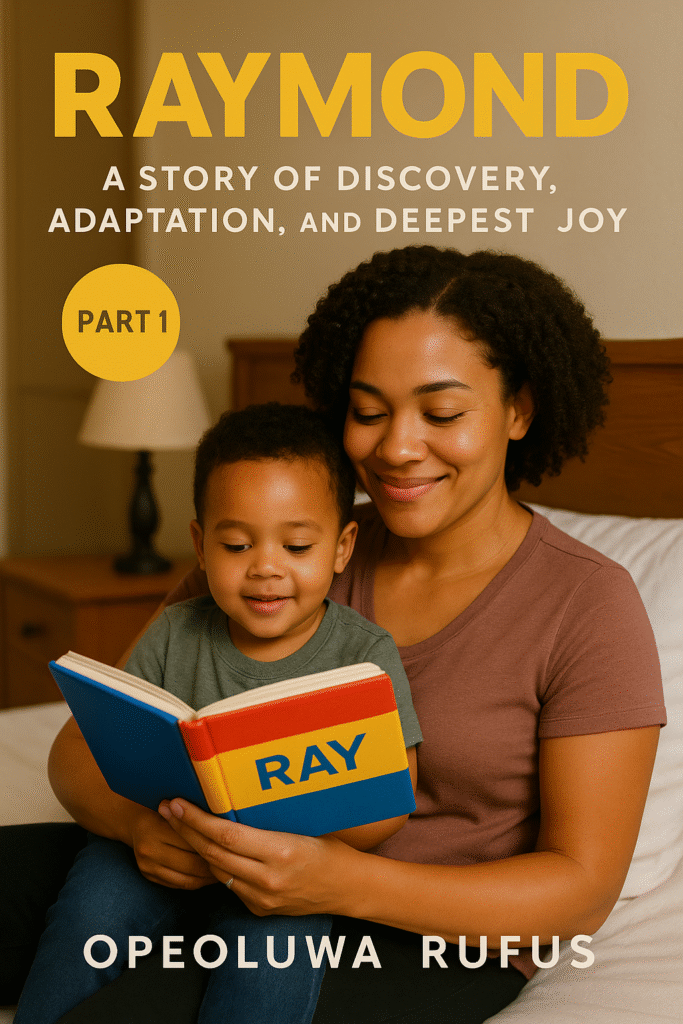
A Story of Discovery, Adaptation, and Deepest Joy
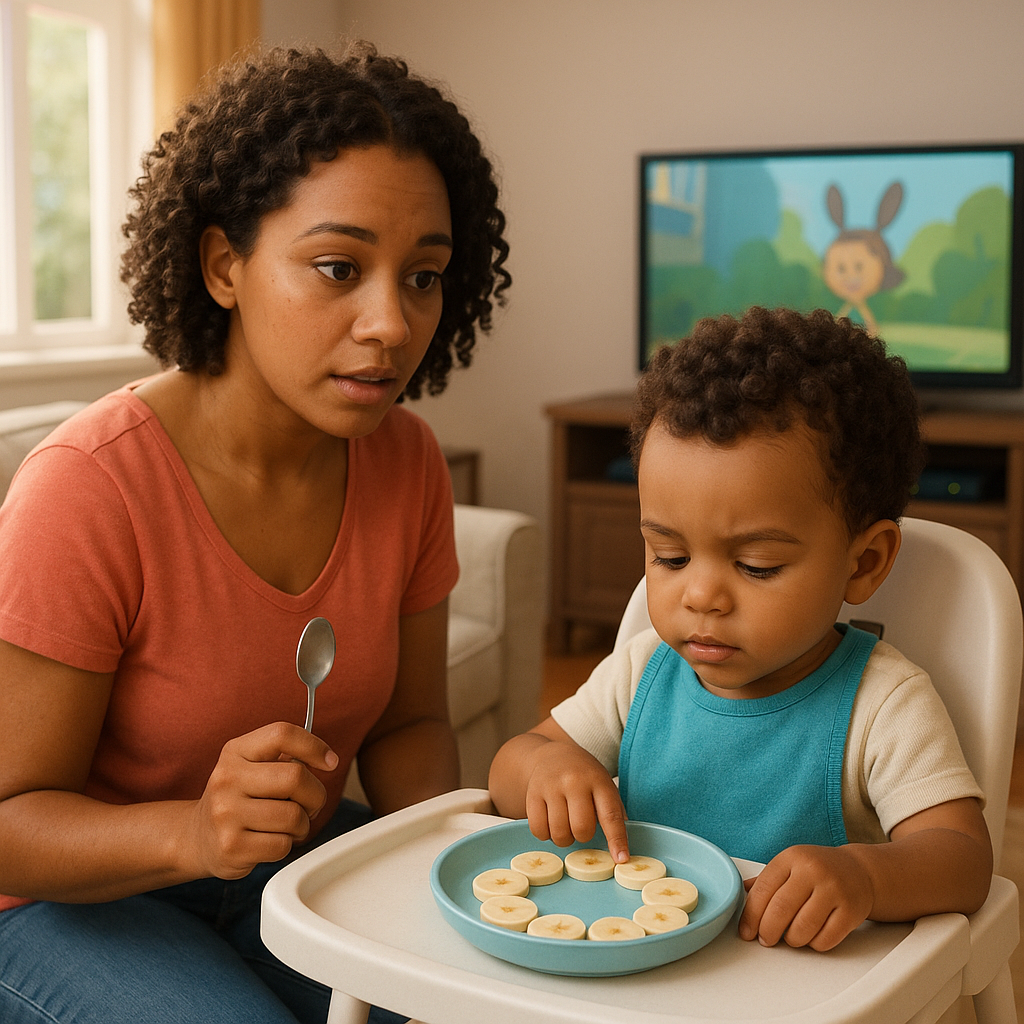
On one bright afternoon in July, I had just given my 13-month-old son a bowl of sliced banana which is his favourite snack. We were alone in our beautifully furnished duplex. I sat on the sofa, while Raymond whom we lovingly called ‘Ray’, was strapped into his high chair, watching his favourite cartoon on the television. Just for a moment, I turned away to grab a spoon and on turning back, Ray had arranged the banana slices into a perfect circle and he was staring at them as if solving a puzzle only he could see.
“Ray,” I said softly, “What are you doing?”
He didn’t look up. Didn’t flinch. Just kept spinning one slice over and over again.
That was the first moment I knew.
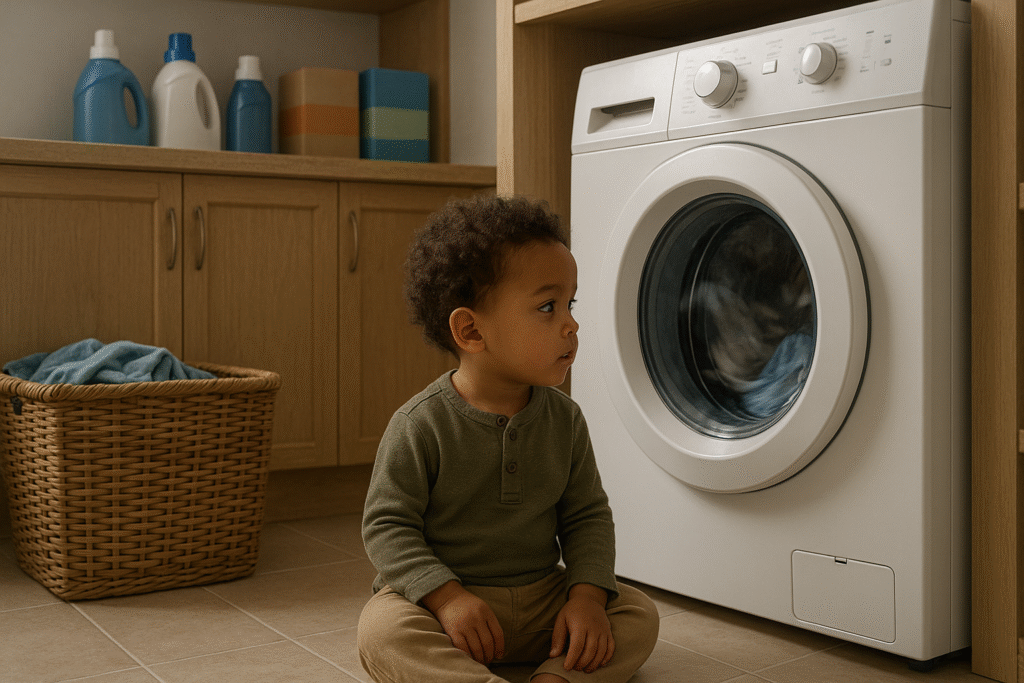
Ray had always been a curious, observant baby. But as he grew, I saw tiny signs that were too quiet to call out at first.
He didn’t point, he didn’t mimic faces and he never made eye contact as expected of babies. But Ray smiled often and he looked adorable when he did. He flapped his hands when excited and became deeply distressed when the blender turned on or when the vacuum cleaner rumbled across the carpet.
He hated tags on his clothes and he would cry for hours if water splashed on his shirt. Yet, oddly enough, he loved the sound of the washing machine and would sit next to it for long stretches, completely calm. Ray enjoyed staring at the machine as it spinned the clothes.
Watching Ray grow for several months in this manner, I told myself one day, “All kids are different!” Friends said, “Boys talk late!” A cousin reassured, Thomas didn’t talk until he was 20 months!”
But my gut whispered, “There’s something more!”
So, I started taking notes every day.
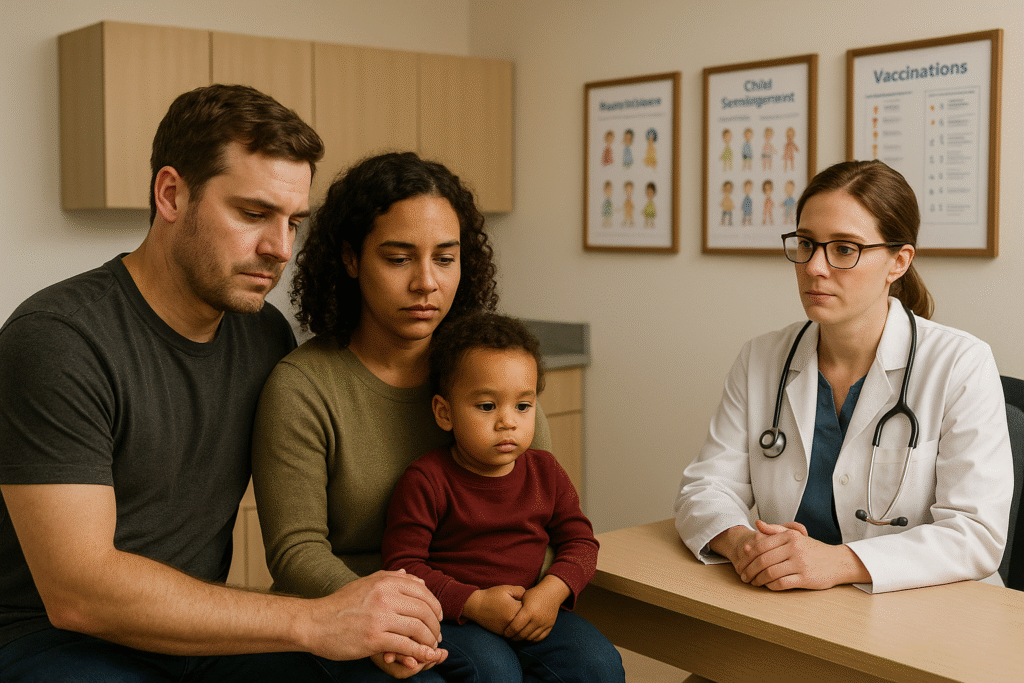
Harry, my 35-year-old husband worked off shore and was only home once every two weeks. Whenever he was around, I showed him the diary I kept for Raymond which he read carefully. Harry was quiet all along as he flipped through the pages of the diary.
Within a couple of days, Harry saw for himself, everything he read in Ray’s diary.
With a worried look on Harry’s face that night, he muttered, “I think we need to see a paediatrician as soon as possible.” I agreed right away and booked an appointment for Ray.
The following week, we met with a developmental paediatrician at a specialist hospital. She watched Ray play and interacted with him gently. She then turned to me and started to ask series of questions. I knew where it was leading, but hearing her ask on and on, it still took the wind out of me.
“Your son shows clear markers for autism spectrum disorder!” he said finally.
The room went quiet.
I nodded, but in my heart, I felt something collapse. I had walked into the consultation room with questions, but I walked out with the beginning of a lifelong journey. An unpredictable journey, filled with the fear of the unknown.
Harry held my cold hand and said, “we’ll be fine, darling! We’ll be fine!”
He turned to the doctor and said, “Thank you,” as we both walked out of the room.
The next week was a blur.
I googled everything. Slept in short bursts. Oscillated between fear, guilt, and something like grief.
Grief not for him—Ray was still Ray, anyway.
It was grief for the parenting story I never thought I’d write.
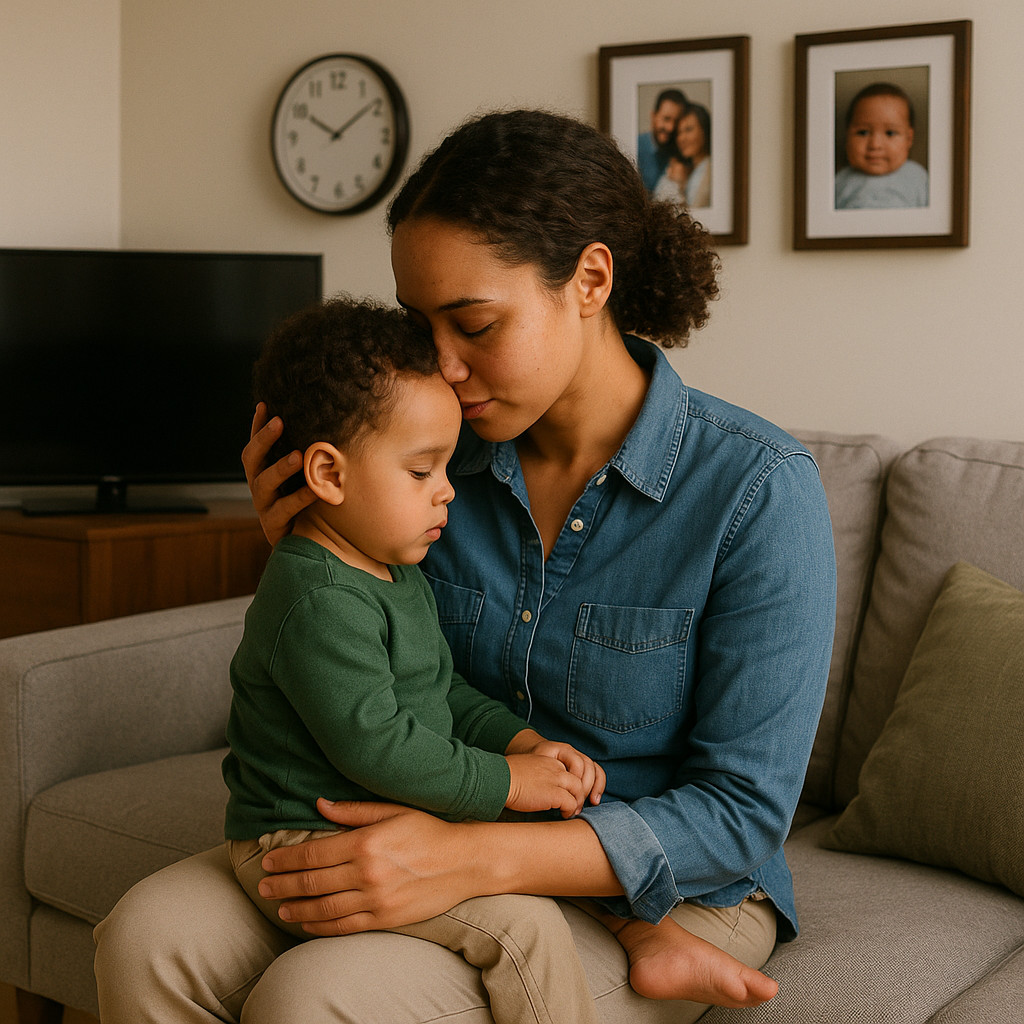
The change and adaptation didn’t happen overnight.
At first, I obsessed over “fixing” things and really believed it was achievable. So, I ordered flashcards, downloaded developmental apps, watched hours of videos on eye contact, speech drills, talked to a few friends whose children were also autistic. I did all possible but didn’t get the satisfying answered I anticipated.
Then, one evening, while frantically trying to teach Ray to point, he simply crawled into my lap, pressed his forehead against mine, and sighed.
And in that moment, something in me surrendered!
This wasn’t a battle to win.
This was a child to understand.
And that was the beginning of acceptance.
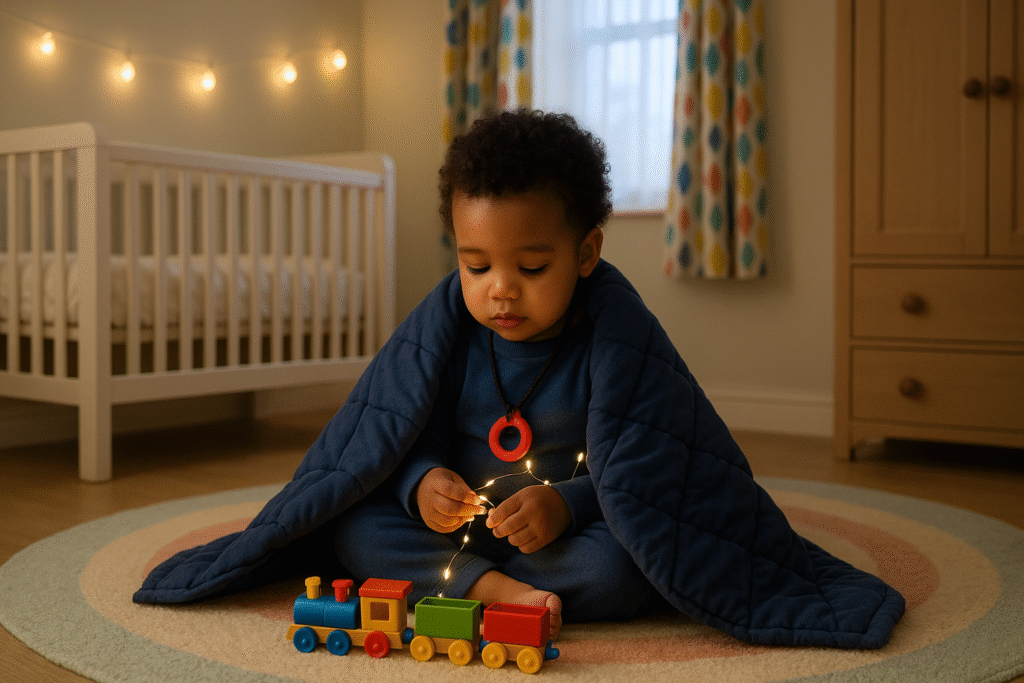
It was quite difficult to understand Ray at first, it was more like entering his sensory universe.
Soft textures? This was Heaven! Crumbly ones? A crisis! Bright lights? Torture overload. Dim fairy lights? Oh! blissful.
We adapted. We continued to buy everything to make Ray comfortable. We bought seamless socks, weighted blankets, chewable necklaces, and a white noise machine. We had toothbrush trials, shampoo ceremonies, and several snack negotiations.
We thought about therapies and one of the best decisions we made was starting sensory integration therapy. His occupational therapist showed us that Ray wasn’t “acting out”, his world was simply louder, rougher, and more unpredictable than ours.
Then the health layers began to unfold.
Ray had digestive struggles. Constipation, bloating and extreme selective eating. I couldn’t bear Ray’s discomfort and uncontrollable cries.
So, we visited the clinic and we were referred to a dietician. We worked with one who explained how gut health could affect behaviour, mood, and even sensory responses.
We tried probiotics, experimented with gluten-free and dairy-reduced diets. We even hid veggies in smoothies but didn’t yield much progress. Though real, but slow.
He started to sleep better and his meltdowns shortened. His energy stabilized and his body slowly began to support his brain more gently.
Ray’s health wasn’t a single solution, it was a puzzle we learned to solve, one clue at a time.
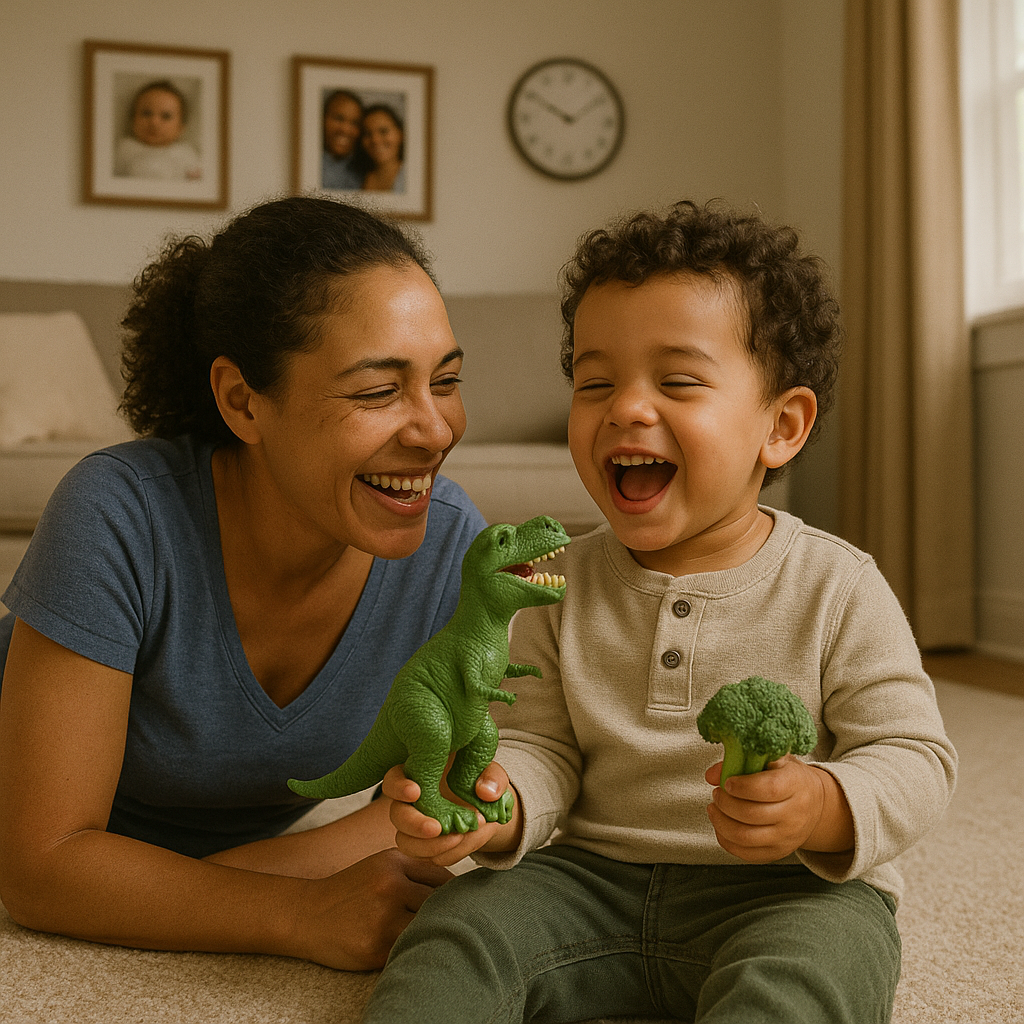
Hold on a minute, if you think raising a neurodivergent child is all work and tears, let me assure you, it’s also hilarious.
Ray and I sometimes had things to laugh about. I tried to make fun out of many things we did together. There was a time I tried to introduce a new vegetable to him, I pretended broccoli was a dinosaur tree. Ray took a look, roared loudly, and fed it to his toy T-Rex instead.
There was one day he found the word “yoghurt” funny and tried to say it more than 45 times in a row until we were both on the floor, breathless with laughter.
Humour didn’t erase the hard days, but it gave us fuel to survive them.
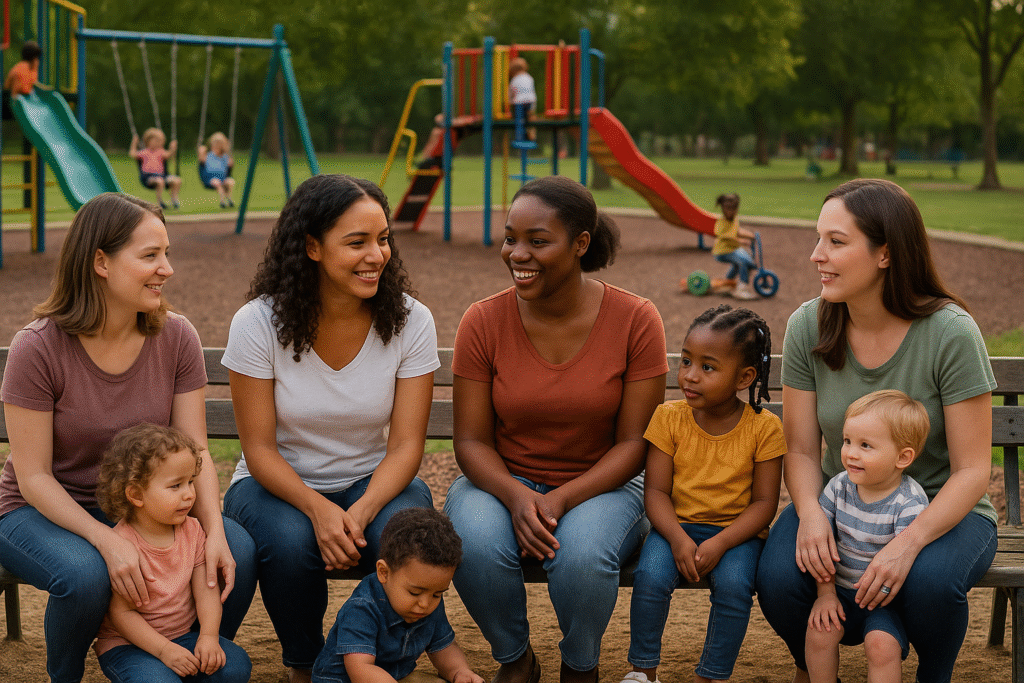
In less than six months after, everything changed. Our home transformed into a structured, sensory-friendly environment. Predictable routines, visual schedules, and clear transitions. I gave up spontaneous plans, we avoided noisy malls. I had to say “no” to many outings and hangouts with friends. Harry and I could no longer go on our usual vacations, and visits to friends and family was reduced to a minimum. And of course, we said “yes” to gentle routines, nature walks, and play-based therapies.
My lifestyle didn’t shrink, it simply reoriented.
Parenting Ray taught me to slow down. To find joy in a blade of grass. To marvel at how a toy train’s wheels spin. I discovered new friendships, especially with other parents walking the same path. Our conversations skipped small talks and dove straight into sleep struggles, texture refusals, and wins like “he touched mashed potatoes today!” We had moments of calmness and soberness mixed with laughter from sharing experiences we had with our wonderfully different children.
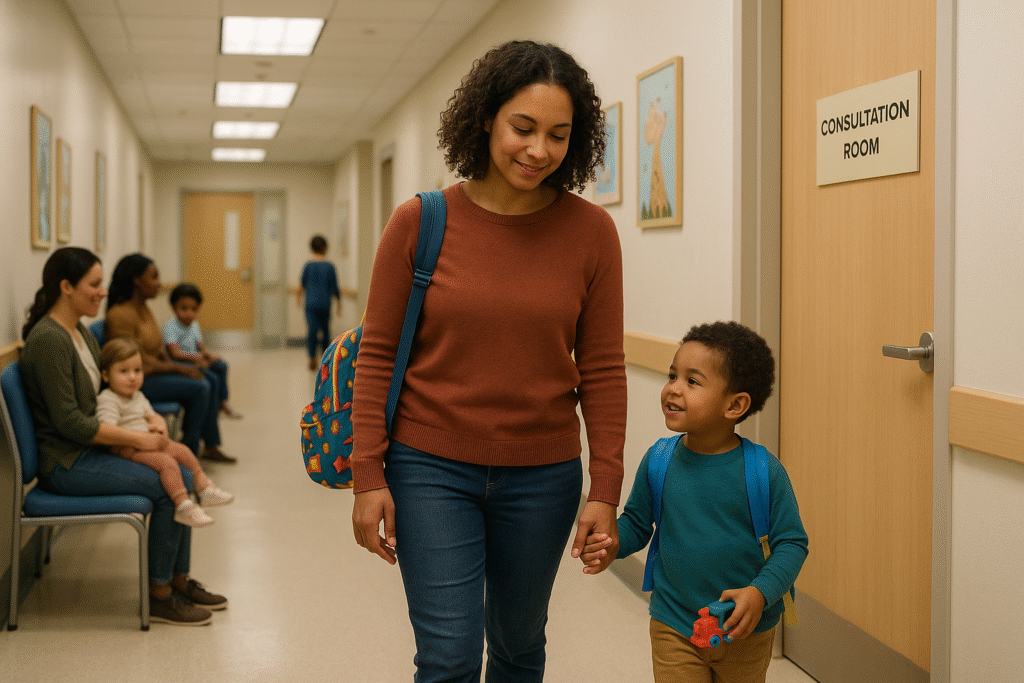
The meaning of the word ‘Resilience’ was redefined to me. It used to mean powering through, pushing past, but now I got different meanings to it. It’s the quiet courage of a child trying a new food after 12 failed attempts. A meltdown that lasts 8 minutes instead of 15. It’s teaching your son to say “help” using pictures, and watching him proudly hold up the card when he needs it.
I didn’t only see strong resilience demonstrated in Ray; I saw it in me as well.
I learned to breathe through judgmental stares at the park, to advocate at doctor’s offices and to go to therapy, not just for Ray, but also for myself.
Resilience is choosing to show up, again and again, even when you don’t know how it will turn out.
One year ago, I was afraid. Today, I’m in awe.
Ray has taught me to listen, not just with ears, but with heart.
I have learnt to love beyond words, to celebrate beyond milestones, and to connect beyond expectations.
His autism is not a barrier. It’s a window into a rich, vibrant way of a being I would have otherwise never seen.
He has grown. I have grown. And our bond is unshakable.
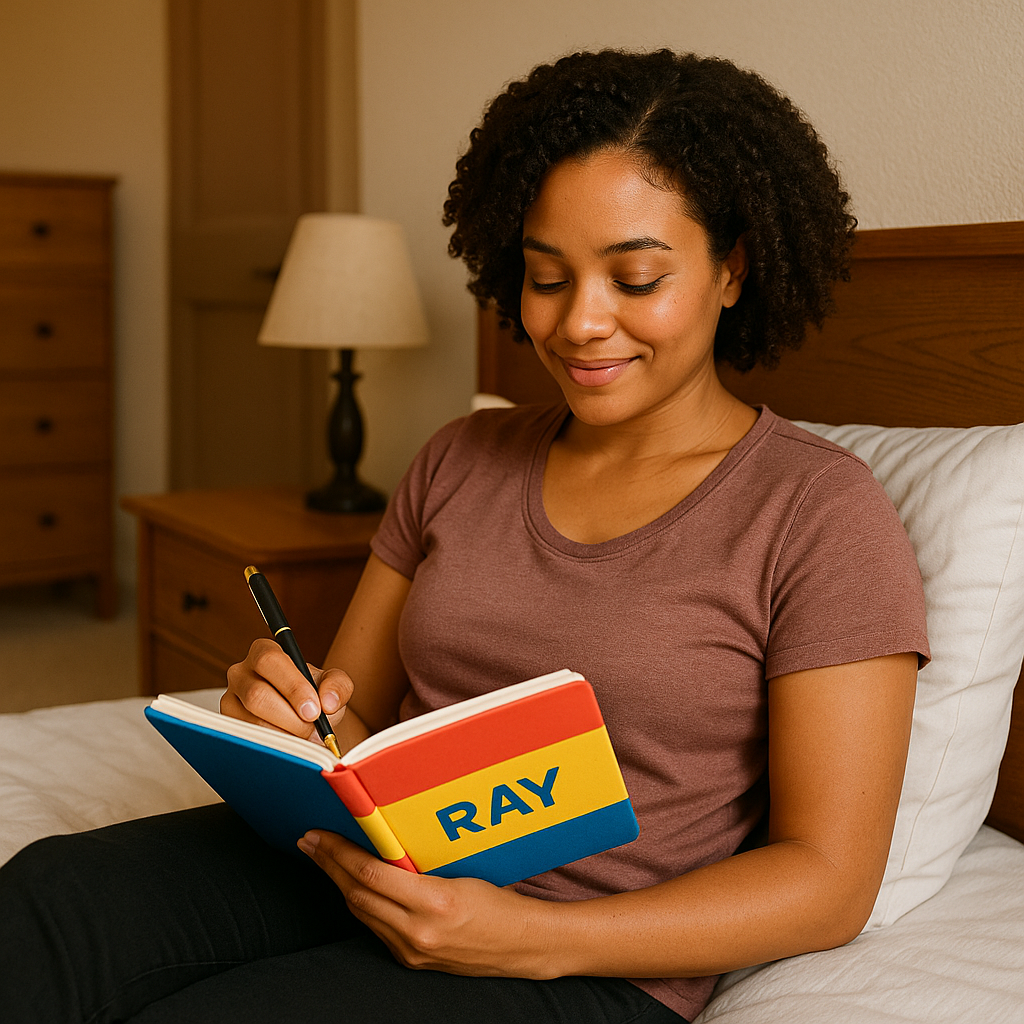
Star Message: To you fellow parents…..
Whether you’re just beginning this journey, or you have been in it, here’s what I want you to know: You are not alone. Your child is not broken. Your love is more than enough!
The diagnosis is not the end, it’s the beginning of seeing your child clearly, deeply, and truly.
You will adapt, laugh and cry. You will grow stronger than you ever imagined.
And you will discover a kind of love that defies logic and rewrites everything you thought you knew.
One year in, I can say this with my whole heart that I didn’t get the story I expected,
I got something better.


Leave a Reply